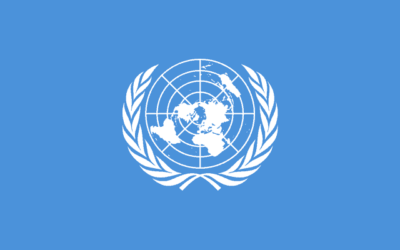Several different legal frameworks apply to business and human rights, including:
Local Law
Relevant local laws may include local environmental regulations and property laws.
National Law
National laws are the main framework for holding corporations accountable for infringements on human rights. These laws can relate to a broad range of human rights topics, including the environment, health and safety, labour and union rights, right to life, anti-trafficking, protections for human rights defenders and whistleblowers, non-discrimination, right to livelihood, property rights, and anti-corruption.
Compared to civil law, there are very few criminal law prosecutions for corporate human rights abuses. This could be explained by the many challenges in holding corporations criminally liable for when human rights abuses occur. The economic power and influence of corporations can be so great as to deter governments from enacting strong corporate crimes legislation for fear of losing investment. Even where this legislation exists, State authorities may be unwilling to enforce such laws because of this economic influence, and also due to lack of expertise or resources.
Another barrier to holding corporations accountable through criminal law is that in some jurisdictions criminal law may not permit a corporation to be held criminally liable, only individuals, such as Germany and Russia. In situations where the criminal activity occurs abroad, criminal law might only apply within a State’s territory, so prosecutors do not have jurisdiction to investigate and prosecute.
To learn more, see the Business & Human Rights Resource Centre page on corporate criminal liability. See also the Danish Institute for Human Rights page on corporate law and governance in national action plans.
Regional Law
Regional human rights bodies — such as the European Court of Human Rights — can issue rulings on human rights violations related to businesses. Like international law, regional law typically applies to States rather than directly to businesses. However, there are some exceptions. The European Union has passed several regulations relevant to business and human rights, including the EU Non-Financial Reporting Directive. The EU is also working towards a mandatory human rights due diligence law, which would apply to all member States; see the Business & Human Rights Resource Centre mHRDD portal for more information.
International Law
International human rights law clearly outlines States’ obligation to protect human rights, including from nonstate actors such as businesses. In effect, this means that State parties must implement legislative, administrative, and other measures to ensure that businesses do not commit human rights abuses. If they do not do so, they can be held in violation of their obligations under international treaties such as the International Covenant on Economic, Social, and Cultural Rights. These obligations are being further explored during the current negotiations on a binding international treaty on business and human rights. However, it is important to note that international human rights law does not apply directly to businesses; it only applies to States that fail to meet their commitments.
There are also a number of non-legally-binding frameworks such as the UN Guiding Principles and the OECD Guidelines; see our key instruments page for more information.
For more details, see the Business & Human Rights Resource Centre corporate legal accountability portal.
Legal Frameworks in Eastern Europe & Central Asia
All of the above frameworks apply within Eastern Europe and Central Asia, with certain States holding additional obligations due to their membership in the Council of Europe and/or the European Union.
- Council of Europe members: Albania, Armenia, Azerbaijan, Bosnia & Herzegovina, Bulgaria, Croatia, Czechia, Estonia, Georgia, Hungary, Latvia, Lithuania, Montenegro, North Macedonia, Poland, Moldova, Romania, Serbia, Slovakia, Slovenia, Ukraine
- European Union members: Bulgaria, Croatia, Czechia, Estonia, Hungary, Latvia, Lithuania, Poland, Romania, Slovakia, Slovenia
- European Union candidates and potential candidates: Albania, Bosnia & Herzegovina, Kosovo, Montenegro, North Macedonia, Serbia
National legal frameworks vary considerably by country. However, there are certain trends. Union legislation tends to be robust, for instance, while corporate criminal liability tends to be low.










